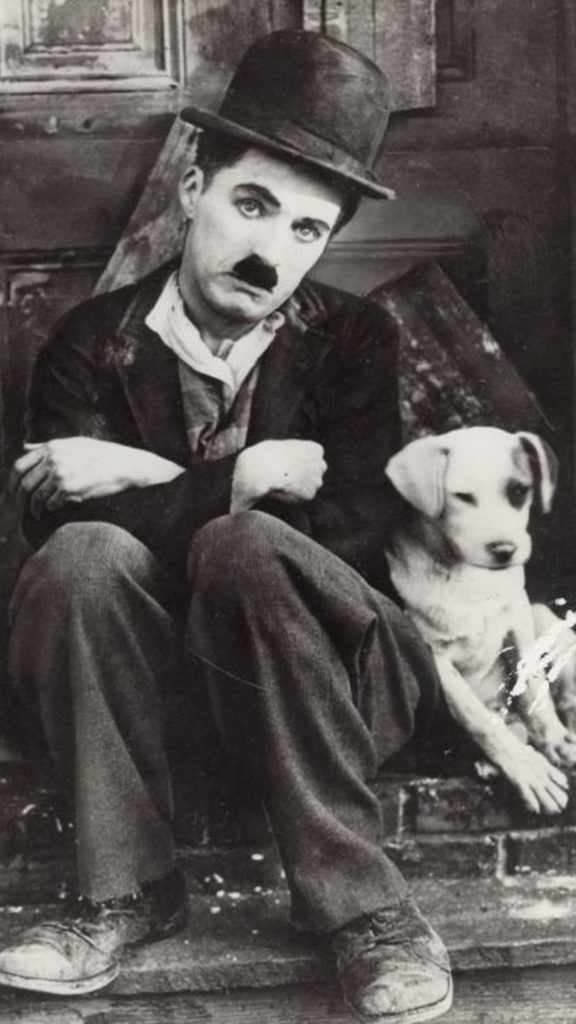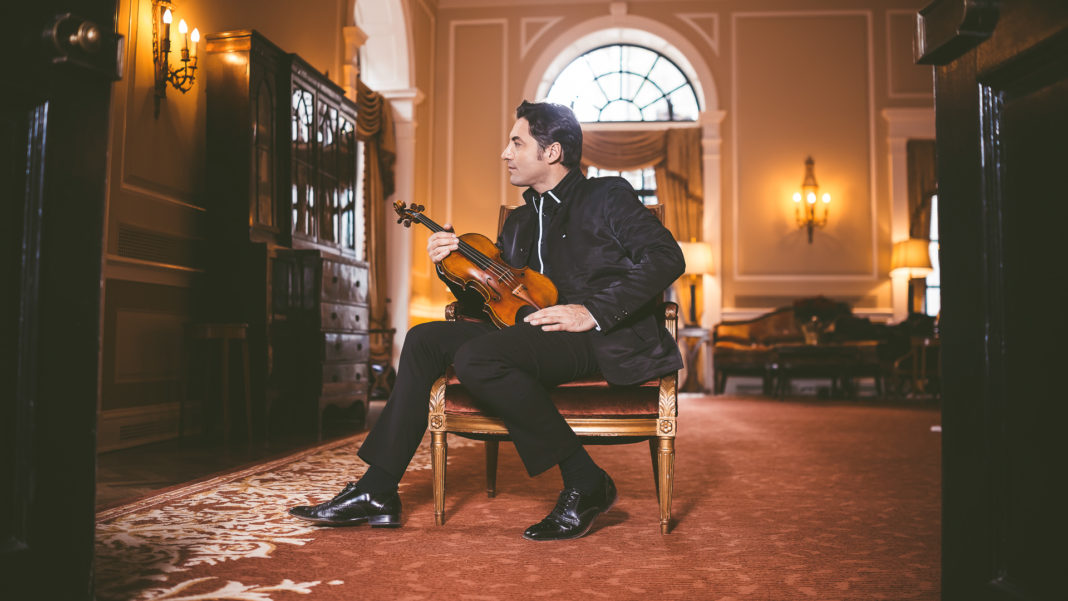“I want to make this my lifetime goal. First to understand what is the formula behind access to classical music or old film or arts and why is that not having a lot of exposure or no exposure at all.” So says Grammy-nominated violinist Philippe Quint. His most recent recording, Chaplin’s Smile, is, perhaps, an effort to bridge that gap. He will be performing music from the record and other selections at Irvine Barclay Theatre on Friday night.
Quint has recorded much of the standard repertoire for a violinist including the concerti of Tchaikovsky, Mendelssohn, Bruch, Korngold and Rozsa. What prompted him to record this goes back to his childhood in Russia when there were just three television channels and Chaplin’s films were regularly broadcast. That was where I started my phone conversation with him last week.
“I think the one thing about Chaplin movies and his music is that nostalgic feeling that gets everyone to travel to a certain time or memory,” he says. “In many ways it was a journey back to my childhood.”
Many people know the song Smile, but few may know that it was written by Chaplin. Fewer still know that the great comedian, director, writer also composed the music for his films. Bringing greater awareness to Chaplin’s work as a composer was just one impetus for Quint to record this album.
“There is a great degree of sincereitywe don’t see these days,” he reveals. “Chaplin resonates with so many people because his films and his music is a heart-on-a-sleeve approach. He was a one-man show: producer, director, writer, composer, arranger, everything. But what he was able to achieve is the great mockery of social issues. The same social issues we are dealing with today from political to personal to tabloids of the time to inequality and diversity. It was all in his films.”
Given how much control Chaplin had on his films, Quint hopes that if he could hear the record, Chaplin would like it for one simple reason.
“One of the big challenges in putting these arrangements together was to preserve the simplicity of his music. In other words, not create some impossible Pagannini-like arrangements.”
When he was writing scores for his film, Chaplin favored the violin. Which comes in handy for a musician like Quint.
“He played the violin left-handed. He loved the violin. Lucky me! Just two weeks ago I got to hold that violin. It’s the violin he purchased when he was 16 years old and you can see it in The Vagabond. Of course I could not play a note because it is set-up in reverse. Besides, it was way too precious.”
The only way an experience like that could happen is through the support of Chaplin’s family – which Quint has.
“I’m now close friends with his granddaughter, Kiera, who is trying to preserve his legacy. She described how strict he was with his family and children and grandchildren, but family and home were essential ingredients of his life. Also I understand he was very sincere and very loving and very generous with his emotions and financially. I feel I have gotten to know him as a man and a composer.”

To be who he was and accomplish all he did, Chaplin had to be a dreamer. As he wrote in his auto-biography, “There are mystics who believe that our existence is a half-dream and that it is difficult to know where the dream ends and reality begins. Thus is was with me.” An idea that Quint can relate to.
“This is what I love. 50% of our lives we spend dreaming and so we don’t know what reality is. Certainly performing for me, especially in the last decade, has become a supernatural multi-dimensional experience where my physical body is on stage, but my soul and my mind are really elsewhere. I would equate performing to a dream.”
He concludes by paraphrasing another quote by the great filmmaker, “We think too much and we feel too little.”*
Photo of Philippe Quint by Isi Akahome/Courtesy of the Artist
*The full quote: “We think too much and feel too little. More than machinery, we need humanity; more than cleverness, we need kindness and gentleness. Without these qualities, life will be violent and all will be lost.”











